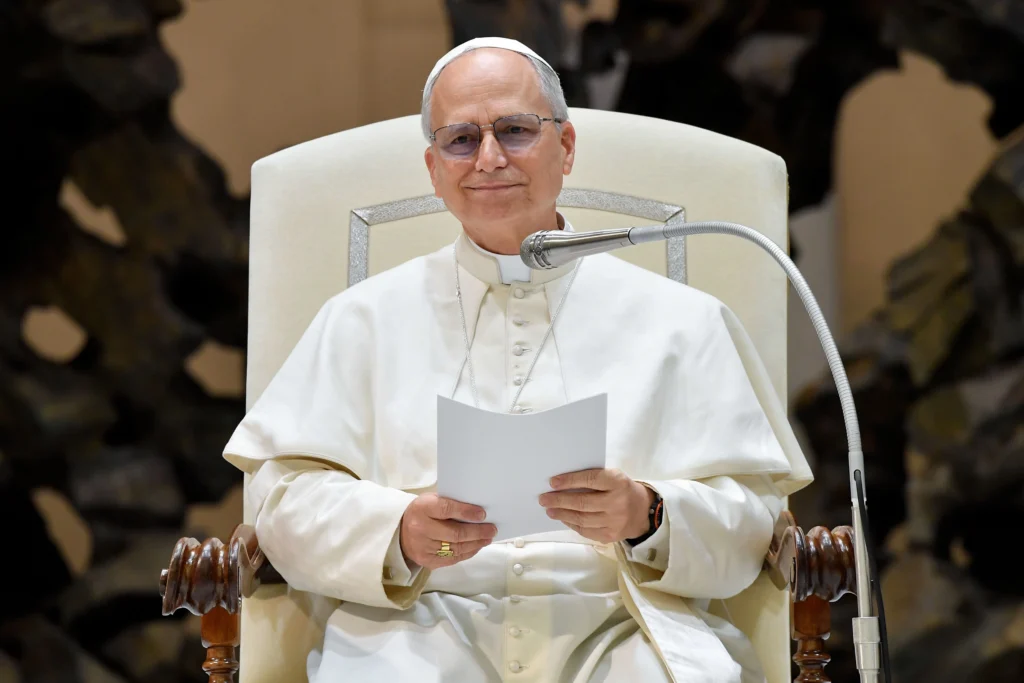Pope Leo XIV held his audience today, August 13, in two parts, the first in the Paul VI Hall and the second in St. Peter's Basilica. The large number of faithful and the high temperatures in Rome forced this extraordinary solution.
Leo XIV reflected on one of the most intense episodes of the Gospel: the moment when Jesus, during the Last Supper, announces that one of his disciples will betray him. The Pontiff recalled that Christ's words-"Truly I tell you, one of you will betray me, one who is eating with me" (Mk 14:18)-do not seek to condemn, but to reveal that authentic love cannot be separated from truth. The scene, he said, reflects a common human experience: the silent pain produced by the shadow of betrayal in the most beloved relationships.
"Will it be me?"
Leo XIV emphasized the way in which Jesus confronts this moment: without shouting, without pointing the finger of blame, leaving each disciple to question himself. From this arises the question that resounded in the hall and that, according to the Pope, continues to be essential today: "Will it be me?". This question, he explained, is not born not from innocence but from the awareness of one's own fragility, and marks the beginning of the path to salvation.
The Holy Father emphasized that the disciples' sadness at the possibility of being partakers of evil is different from indignation; it is a pain that, if sincerely accepted, can become an occasion for conversion. He also interpreted Jesus' harsh words-"Woe to that man...!"-as a lament of compassion, not a curse, and recalled that God does not respond to evil with vengeance, but with suffering and love.
For Leo XIV, the central teaching is that Jesus is not scandalized by human frailty: he continues to trust, he continues to share the table even with those who will betray him. "This is the silent strength of God: he never abandons the table of love," he said.
Finally, the Pope invited believers to ask themselves the question "Will it be me?" not to live under accusation, but to open their hearts to truth and mercy. "Though we may fail, God never fails us. Though we may betray, He never stops loving us. If we allow ourselves to be touched by this humble and faithful love, we can be reborn and live as children who are always loved," he concluded.








